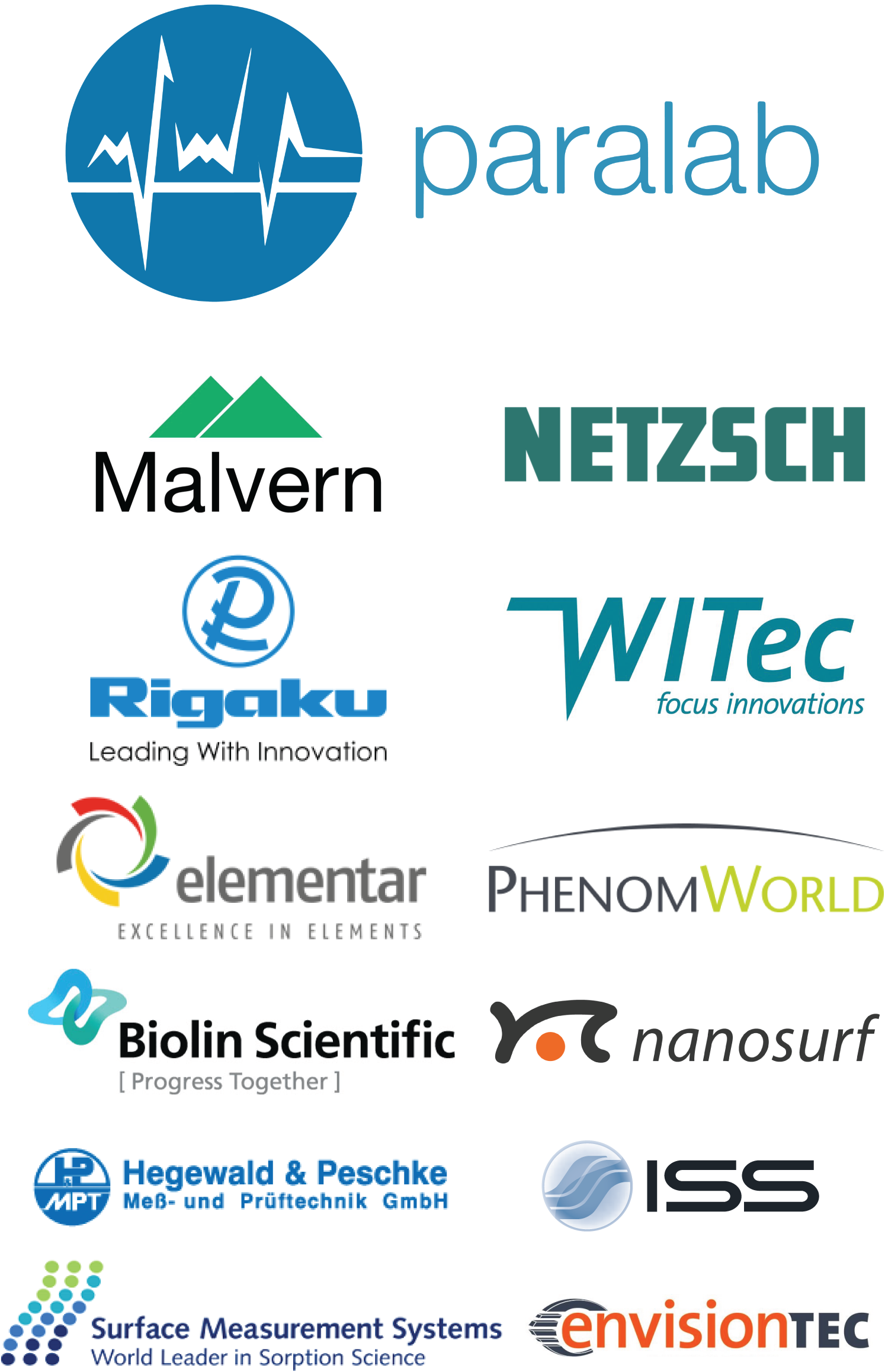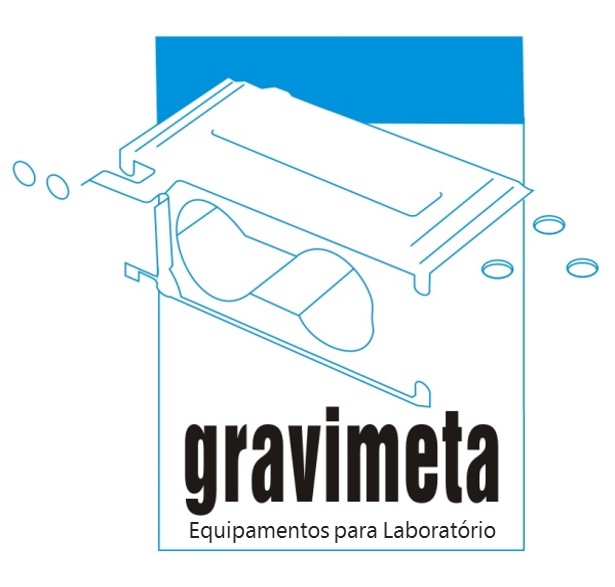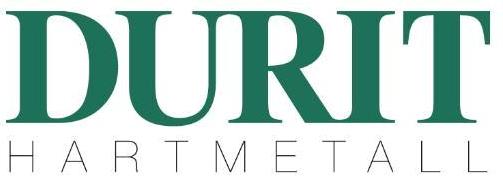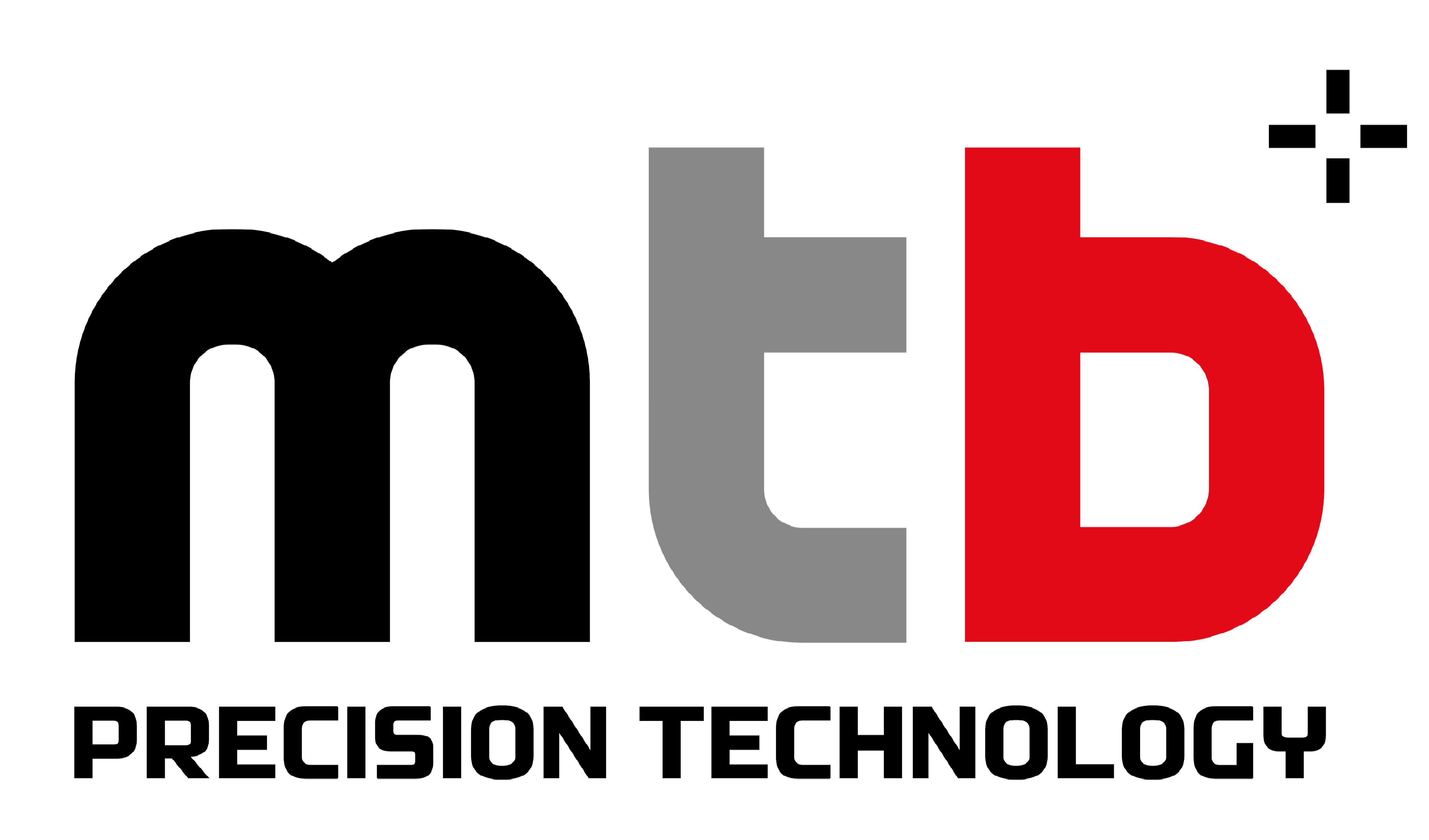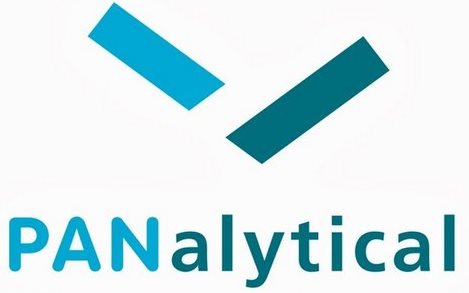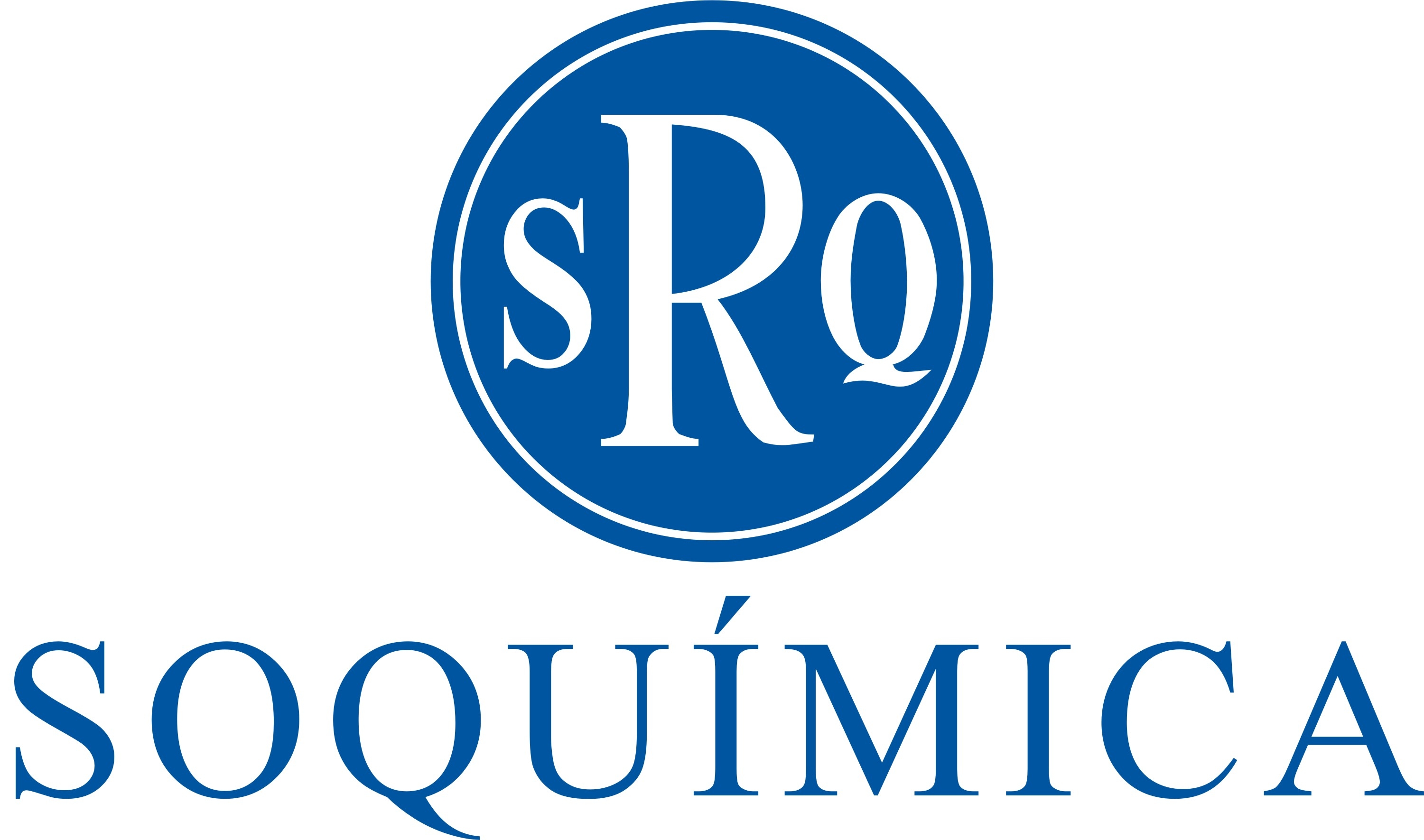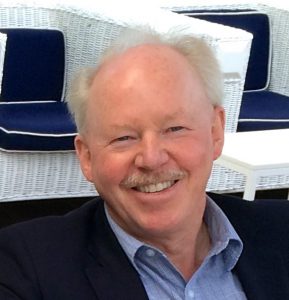 |
Angus Kingon
Brown University
Professor of Engineering
University Professor of Entrepreneurship and Organizational Studies
Angus Kingon holds dual faculty positions at Brown University in the USA. He is Professor of Engineering, where he specializes in electronic materials, and is
also Professor of Entrepreneurship and Organizational Studies, responsible for research, teaching and programs in entrepreneurship and technology commercialization.
As an electronic materials researcher, he has focused on functional oxides for applications such as memory devices, capacitors, RF and microwave devices, piezoelectric sensors
and actuators, miniature power generators, and thermoelectric devices. He has published about 340 papers in refereed journals, edited 7 books, published 6 book chapters, and has
15 issued patents. Some of his research has been commercialized, for example for use in mobile phones, and mobile controllers.
In his second role he studies and teaches technology entrepreneurship and commercialization. He is the Co-Director of the Program in Innovation Management and Entrepreneurship,
and founding Academic Director of the IE-Brown Executive MBA program. He has developed or advises technology commercialization and technology entrepreneurship programs in multiple countries.
He was the co-winner of the Price Foundation Award as Innovative Entrepreneurship Educator for 2006. He is a Fellow of the Center for Innovation Management Studies, and a Fellow
of the American Ceramic Society.
|
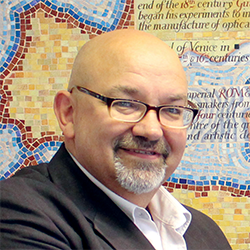 |
Ian M. Reaney
Professor at the Department of Materials Science and Engineering, University of Sheffield.
He joined the department in 1994, as a PDRA, then as a Lecturer from 1995 followed by eventual promotion to Professor in 2007. He attained his PhD from the University of Manchester in 1989 and worked as post-doctoral researcher at the University of Essex before joining the group of Professor Setter at the Laboratoire de Ceramique, Ecole Polytechnique Federale de Lausanne in Switzerland in 1991. He is the deputy Head of MSE and Director of Teaching. He is since 2015 an Adjunct Professor at the University of Aveiro, Department of Materials and Ceramics Engineering. The main theme of Reaney´s research is the use of analytical and high resolution transmission electron microscopy to study the structure and microstructure of electroceramics. He has specialised in recent years in the study of microwave and piezoelectric materials in which fields he has many key papers. His research activities are mainly concerned with materials and devices for sensor and actuator applications as well as dielectric resonators and antennas for microwave communications.
|
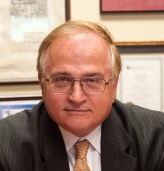 |
Nicholas A Peppas
Cockrell Family Regents Chair in Engineering #6
Family Chair for Department Leadership #1
Professor of Chemical Engineering
Director, Institute of Biomaterials, Drug Delivery and Regenerative Medicine
Professor, McKetta Department of Chemical Engineering, Department of Biomedical Engineering, Department of Surgery and Perioperative Care,
Dell Medical School, and Division of Pharmaceutics, College of Pharmacy
The University of Texas at Austin. |
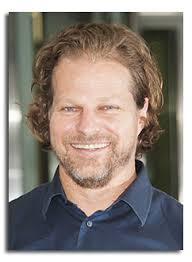 |
Brian A. Korgel
University of Texas at Austin
Edward S. Hyman Endowed Chair in Engineering
T. Brockett Hudson Professor of Chemical Engineering
Director, Industry/University Cooperative Research Center for Next Generation Photovoltaics
|
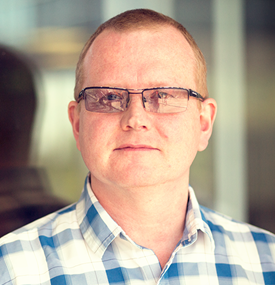 |
Christopher Rhys Bowen
University of Bath
ERC Advanced Investigator
Christopher Rhys Bowen has a BSc degree in Materials Science from the University of Bath (1986-1990) and a DPhil in Ceramics
from the University of Oxford (1990-1993). Post-doctoral work has been undertaken at Tecnische Universität Harburg-Hamburg and University of Leeds (1994-1996). He was Senior Scientist at the Defence
Evaluation and Research Agency from 1996-1998. He joined the University of Bath as a Lecturer in 1998 and is now Professor of Materials and ERC Advanced Investigator, ERC Grant Agreement no. 320963
on Novel Energy Materials, Engineering Science and Integrated Systems (NEMESIS). Research areas include energy harvesting, piezoelectric materials and functional ceramics.
|
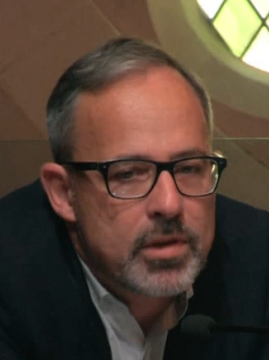 |
François Berger
University Joseph Fourier
Neuro-oncologist
François Berger (MD-PhD) had a dual scientific and clinical education in the field of neurology, oncology and molecular and cell biology. For the last 3 years he coordinated the Clinatec Research Center and the Clinatec Translational Technology Team (with A. Bouamrani). The team is composed of 3 technicians, 3 research engineers, 1 neurosurgeon, 5 PhD students, and 6 senior researchers. F.B continues to have a dual clinical and research activity has professor of cell biology and oncology. He develops a translational research activity in Clinatec, trying to validate innovative technologies at the preclinical/clinical level in close collaboration with CEA-LETI micronanotechnology centre. Clinatec is a clinical-preclinical research facility devoted to the validation of new implanted micro-nanotechnologies at the human brain interface associating biological and imaging facilities to provide the best environment for the first preclinical and human proof of concept
|
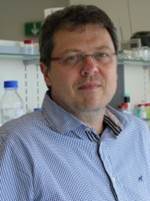 |
João Mano
Department of Chemistry
University of Aveiro, Portugal
João F. Mano (CEng, PhD, DSc) is a full professor at the Department of Chemistry of
the University of Aveiro (Portugal). During his career he has been teaching courses related to biomaterials science
and technology, tissue engineering and physical-chemistry of polymers and materials, in both undergraduate and graduate
levels. He published three educational-related papers in peer-reviewed international journals and was involved in several
training/educational activities.
João F. Mano has received different honours and awards: (i) fellow of the IUPAC (International Union of Pure and Applied Chemistry) since 2004; (ii) the Stimulus to Excellence Award by the Portuguese Minister for Science and Technology in 2005; (iii) the Materials Science and Technology Prize, attributed by the Federation of European Materials Societies (FEMS) in 2007 (iv) UNESCO Chair on Biomaterials attributed in 2008 from the University of Havana (Cuba); (v) the major BES innovation award in 2010 (at that time, one of the most recognised innovation prize in Portugal); (vi) recipient an Advanced Grant from the European Research Council (ERC-AdG), in 2015.
|
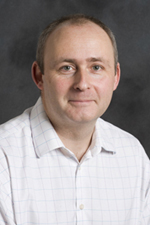 |
Jonathan Knowles
University College of London, UK
Professor of Biomaterials Science; Biomaterials & Tissue Eng; Eastman Dental Institute; Faculty of Medical Sciences
Jonathan Knowles has a PhD in Biomedical Engineering and is currently Professor of Biomaterials Science at University College London. He is editor in Chief for the Journal of Biomaterials Applications and also Editor in Chief for the Journal of Tissue Engineering. He is also on the editorial board for a number of other journals including Biomaterials and Journal of Tissue Engineering and Regenerative Medicine.
Main research interests: His main interests lie in the area of degradable materials, including inorganic and organic materials and is particularly interested in the structure-property relationships in glasses for tissue engineering. He is also works ion processing glasses into 3D structures for growing a variety of tissues including muscle, ligament, nerve and bone.
He has worked on a wide variery of projects funded by UK and EU funding bodies and currently has a large EU grant on regenerative and precision medicine. He has supervised many PhD’s and postdoctoral researchers who now work throughout the world. His scientific output is extremely high, with over 400 publications and a total citation count of over 14,000 and an h-index of 68.
|
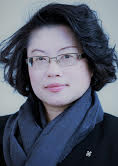 |
Lenny Koh
Sheffield University Management School, UK
Chair Professor in Operations Management
Director of Centre for Energy, Environment and Sustainability (CEES)
Director of Logistics and Supply Chain Management (LSCM) Research Centre
Professor SC Lenny Koh (H index 49) is a senior Chair professor of Operations Management and a former Associate Dean at the Sheffield University Management School, and currently Directors of
three research centres, i.e. LSCM, CEES and AREC at The University of Sheffield. She holds a First-class honours degree in Industrial and Manufacturing Systems Engineering, and a Doctorate in Operations Management.
She is an internationally renowned authority on supply chain with a focus on low carbon and sustainability. Her research is recognised for its scientific novelty and has generated major impacts for society, industry and government.
Her interdisciplinary approaches have advanced the understanding and resolution of complex supply chain problems with supply chain life cycle thinking and have transcended resource efficiency and resource sustainability across disciplines.
She has more than 308 publications, and has generated about £40M of career research incomes.
|
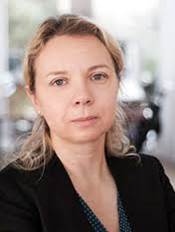 |
Pamela Habibovic
Technology-Inspired Regenerative Medicine
Maastricht University, NL
The main focus of her research group is on synthetic bone graft substitutes, bioinorganics and high-throughput approaches in biomaterials research.
She received prestigious Veni and Aspasia grants of the Netherlands Organisation for Scientific Research among other external research funds. In 2013, she was elected a council member of the European Society for Biomaterials, she was board
member of the Female Faculty Network Twente and serves as an editorial board member of the journals Acta Biomaterialia, Journal of Materials Science: Materials in Medicine, Advanced Biomaterials and Deviced in Medicine and Biomatter. In 2013, she received
the Jean Leray Award of the European Society for Biomaterials.
Pamela Habibović obtained her PhD degree in 2005 from the University of Twente in the Netherlands. Following two post-doctoral research projects, one at Children’s Hospital Boston-Harvard Medical
School in Boston, USA and the other at McGill University in Montreal, Canada, she returned to the Netherlands, where she led a research group at the University of Twente’s MIRA Institute for Biomedical Technology and Technical Medicine between 2008 and 2014,
first as assistant and later as associate professor. In 2014, she moved to Maastricht University, where she became full professor of Inorganic Biomaterials and chair of IBE.
|
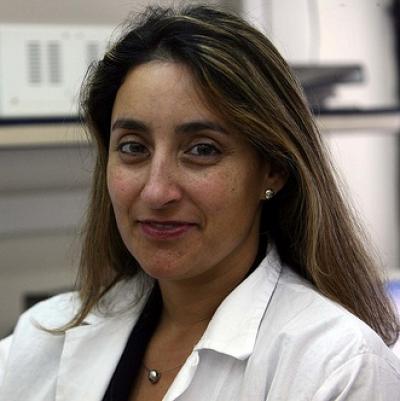 |
Ronit Satchi-Fainaro
Head of the Cancer Research & Nanomedicine Laboratory
Chair of the Department of Physiology & Pharmacology
Sackler Faculty of Medicine, Tel Aviv University
President of the Israeli Controlled Release Society
Prof. Ronit Satchi-Fainaro serves as advisor to several Israeli and International biotech and pharma companies and is on the editorial boards of several biological and chemical journals. She has published more than 70 manuscripts, 12 book chapters, edited 2 books, is named inventor on 40 patents, and was awarded numerous prestigious grants and prizes, among them Fulbright, Rothschild, ERC Consolidator Award, Alon, Young Investigator Award of the EACR, Juludan Prize and Teva Pharmaceutical Industries Founders Award. Her scientific achievements in the fields of cancer and nanomedicine were acknowledged numerous times by inclusion in honorary lists by leading magazines such as Forbes, The Marker, Globes and Calcalist. In 2016, Prof. Satchi-Fainaro was selected to represent Israel at the Biennale in Venice on the inspiration of medicine on architecture.
|
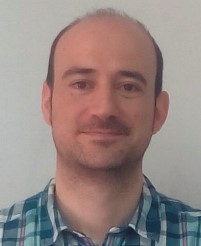 |
David Maestre Varea
Assistant Professor of the Materials Physics
Universidad Complutense de Madrid
David Maestre Varea is an assistant professor of the Materials Physics Department at the Universidad Complutense de Madrid. He attained his PhD
from the Universidad Complutense de Madrid in 2007 and worked as post-doc at the Paul Cézanne-Aix Marseille III Université (Marseille, France) and
the Christian Albrechts Universität (Kiel, Germany) where he got insights in areas of research related to photovoltaics and electronic microscopy.
He is a member of the Physics of Electronic Nanomaterials Group (FINE), a research group focused on the study of semiconductor and electronic nanostructures
with the aim to investigate their structure, morphology and physical properties. During the last years, he focused on the fabrication and characterization of
semiconducting oxide micro- and nanostructures based on SnO2, TiO2 and In2O3. He has published more that 50 manuscripts and 2 chapters of books and invented 4 patents,
two of them finalists at the “Emerging Technologies Competition, Royal Society of Chemistry 2015”. He received the “Fonda Fasella Award 2011” and is co-winner of the
“FEMS Lecturer Award for Excellence in Materials Science and Engineering 2016 “.
|
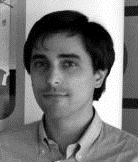 |
João Gomes
CENTI - Centre for Nanotechnology and Smart Materials, Portugal
João Gomes, Holds a Master’s degree in Materials Processing and Characterization from and a Degree in Physics from University of Minho. Previously worked as physical data and device analyst and as a junior meteorologist at the Portuguese National Meteorological Institute. From 2006 to 2007
worked as a researcher for the Electroactive Materials Group of the Department of Physics of the University of Minho. Since 2007 worked a researcher and later as R&D Manager of the Smart Materials Department of CeNTI, focusing on the areas of Printed and Integrated Electronics and Embedded Systems. Currently works manly with the development of new
technologies and products with printed and integrated electronics and smart functionalities for the automotive and aeronautic, home and wellness, and construction industrial sectors. He has many publications in this field in international journals including several patents.
|
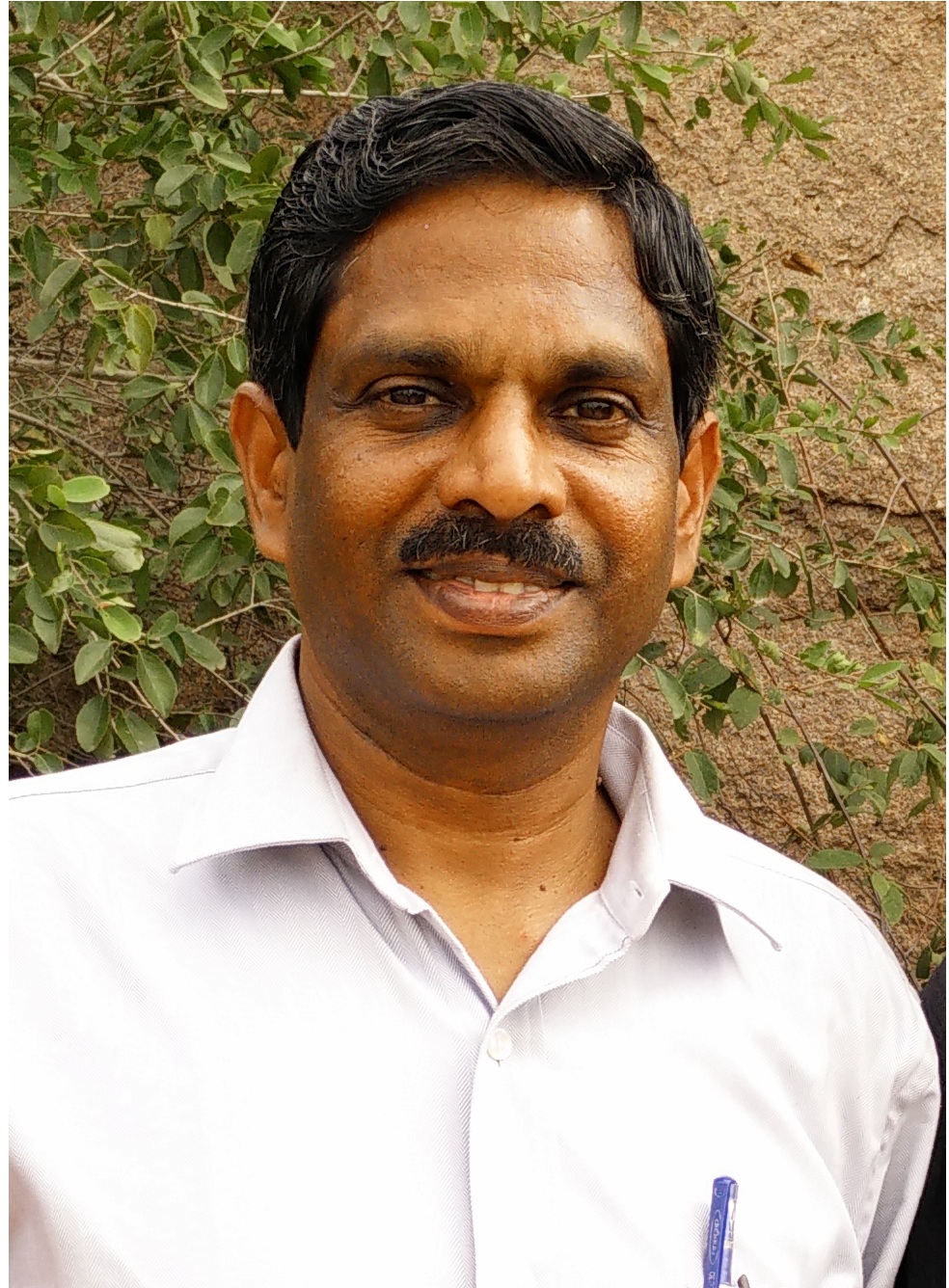 |
K. C. James Raju
University of Hyderabad India
Ph.D from Indian Institute of Technology, Chennai, India. Working since 1996 with University of Hyderabad. Worked with low loss and high dielectric constant materials for microwave dielectric resonator, MIC substrate and for microwave window applications. Also worked with microwave sintering of electroceramics to achieve faster sintering to avoid volatization of Bi and to retain fine grain size. Recently he is working with ferroelectric thin films grown by PLD and RF sputtering and studying them in the microwave range for tunable microwave devices like varactors, filters, phase shifters and FBARs.
|
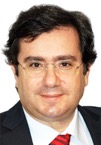 |
Paulo Bártolo
Paulo Bartolo is Chair Professor on Advanced Manufacturing at the School of Mechanical, Aerospace and Civil Engineering (MACE), University of Manchester (UK), Visiting Professor at Nanyang University (Singapore), Collaborator Professor of the Advanced Manufacturing Group at the Tecnologico de Monterrey (Mexico) and CIAUD (The Research Centre for Architecture, Urbanism and Design) a Centre of Excellence of the Portuguese Foundation for Science and Technology based at the University of Lisbon (Portugal). At the School of MACE, he is the Head of the Manufacturing Group, the Head of the Innovative Manufacturing Research Theme, Director of the Manchester Biomanufacturing Centre, member of the Senior Leadership Team Committee, School Board Promotion Committee and Equality and Diversity Committee. At the University of Manchester is also member of the Management Board of the EPSRC & MRC Centre for Doctoral Training (CDT) in Regenerative Medicine and member of the Steering Committee of the Nanomedicine Network. He is also Champion of the Biomedical Devices and Systems core area at the Sir Henry Royce Institute (SHRI) for Advanced Materials a major UK.
He is a Fellow of CIRP (The International Academy of Production Engineering), Chairman of the CIRP Scientific Technical Committee on Electro-Physical and Chemical Processes (STC E) and served as Vice-Chairman of STC E (2013-2016) and Vice-Chairman of the CIRP Collaborative Working Group on Biomanufacturing (2010-2012).
Paulo Bartolo is also advisor of several International funding agencies, such as the European Research Council, the Portuguese Foundation for Science and Technology (Portugal), the Portuguese Agency for Innovation (Portugal), the Italian Agency for the Evaluation of Universities and Research Institutes (Italy), the Dutch Arthritis Association Reumafonds (The Netherlands), the Fonds Wetenschappelijk Onderzoek (FWO), the Flanders Research Foundation (Belgium), Agence Nationale de la Recherche (France), the Natural Sciences and Engineering Research Council of Canada (Canada), the Swiss National Science Foundation (Switzerland), the Flanders Strategic Initiative Materials (Belgium), and the South Africa Science Foundation (South Africa).
He has authored more than 500 publications in journal papers, book chapters and conference proceedings, co-edited 18 books (most of them published by Springer, Wiley and Taylor&Francis) and holds 13 patents. Paulo Bártolo is the Editor-in-Chief of the Virtual and Physical Prototyping Journal published by Taylor & Francis and the Biomanufacturing Reviews published by Springer. He is also member of the Editorial Board of several international journals including the major journals on additive manufacturing.
|
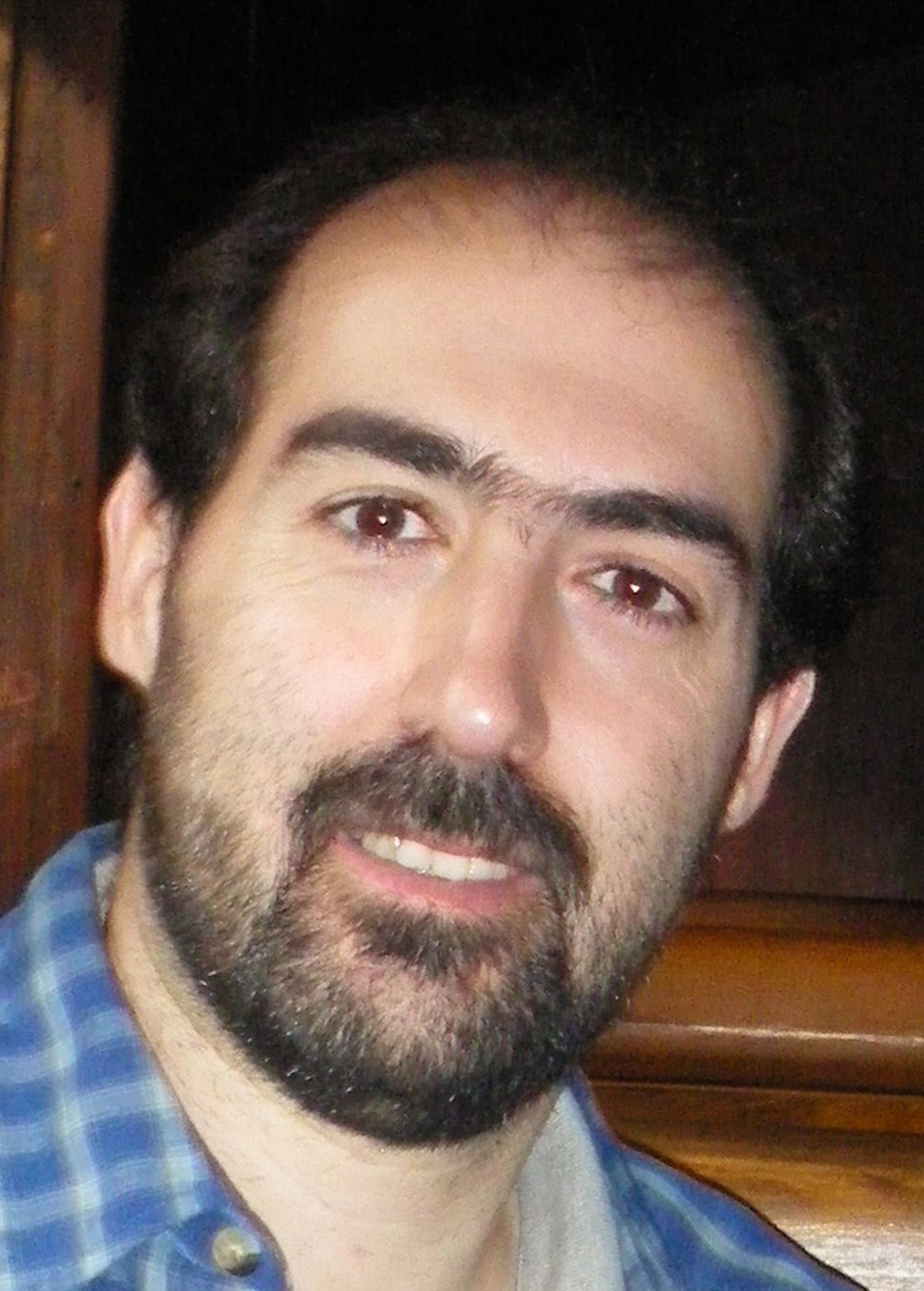 |
Raul Arenal
University of Zaragoza
Raul Arenal received his Ph.D. in Solid State Physics from Univ. Paris-Sud (Orsay, France, 2005) and in 2013, he obtained his Habilitation (HDR) also at this University. From April 2005 to August 2007, he joined the
Electron Microscopy Center in Argonne National Laboratory (ANL, USA) as post doctoral fellow. In 2007, he became research scientist (Chargé de Recherches) at the CNRS (France), working at the LEM, CNRS-ONERA (Chatillon, France).
From September 2010 to December 2011, he was visiting scientist (sabbatical position) at the Laboratorio de Microscopias Avanzadas (LMA) at the Instituto de Nanociencia de Aragon (INA) of the Universidad de Zaragoza (Spain).
Since 2012, Dr. Arenal is on leave from the CNRS, and he is currently ARAID research scientist at the LMA-INA-Universidad de Zaragoza. In addition, since 2007 he is visiting researcher at the ANL (USA). He has published more
than 130 papers (H=26) in refereed journals, edited 1 book and published 6 chapters of a book. His broad area of research interest lies in electron microscopy focused on materials science and nanoscience: TEM (EELS, HR(S)TEM,
electron diffraction, electron tomography). These studies are mainly focused on the growth mechanism, structural and physical (electronic, optical, vibrational, mechanical) properties of nanomaterials based on carbon, boron and
nitrogen as well as other nano-structures (in particular, metallic nano-objects for plasmonic/photonic interest). Among his scientific activities, Dr. Arenal is the chair of the HeteroNanoCarb conference series
focused on graphene, NT and related 1D-2D nanomaterials.
|


















